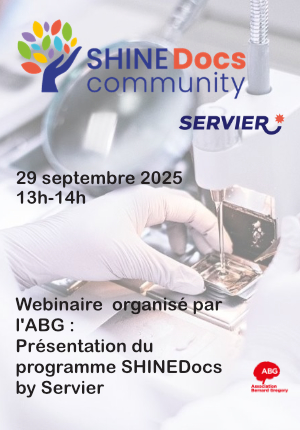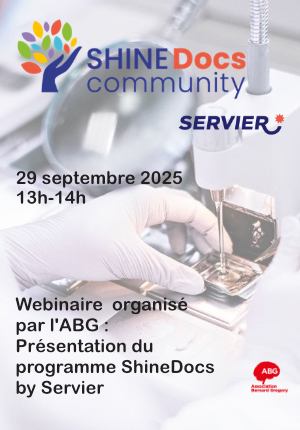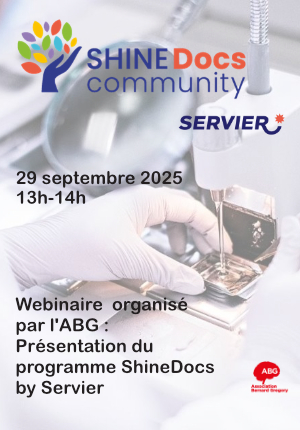PhD Opportunity – Computer Vision & Artificial Intelligence applied to Swine Production
| ABG-133253 | Thesis topic | |
| 2025-08-29 | Public/private mixed funding |
- Computer science
- Agronomy, agri food
Topic description
Project Title: Computer Vision Applied to Swine Production and Processing
Context:
Computer vision and artificial intelligence (AI) are revolutionizing many sectors: healthcare, transportation, manufacturing, and agriculture. The agri-food sector is now an exceptional field of application, where technological advances intersect with major societal challenges such as food security, animal welfare, and sustainability.
Swine production, a key economic pillar in Quebec, Canada (CAD $1.6B in production revenues and $4.4B in processing), faces urgent challenges: rapid disease detection, animal welfare monitoring, and labor shortages. Currently, most animal monitoring and inspections are performed visually by humans, which is time-consuming and error-prone.
Computer vision, leveraging recent advances in deep learning, offers powerful solutions to automate these tasks and provide reliable real-time information. This doctoral project is part of a 5-year research chair on Computer vision applied to the swine sector, in partnership with major industry players (Les Éleveurs de porcs du Québec, Olymel, and CDPQ) and MAPAQ.
PhD Objectives:
This 4-year PhD project aims to develop and validate robust Computer vision algorithms for:
Swine production: Early detection of health problems in pigs (respiratory diseases, abnormal behaviors) from video streams.
Swine processing: Automated assessment of animal condition and detection of lesions or anomalies on carcasses and viscera.
The student will work with real-world data (videos and images collected from farms and commercial slaughterhouses), a rare opportunity in academic research, ensuring strong scientific and applied impact.
Scientific Challenges:
This project provides a unique opportunity to address cutting-edge problems in AI and Computer vision, including:
- Object detection and multi-animal tracking in complex environments.
- Behavioral analysis and animal posture recognition.
- Image processing under uncontrolled conditions (variable lighting, occlusions, movement).
- Lesion and anomaly detection in biomedical/industrial imaging.
- Development of robust models transferable to real-world environments.
- Use and development of 3D reconstruction techniques.
Candidate Profile:
- Master’s degree in computer science, computer/software engineering, applied mathematics, artificial intelligence, or a related field.
- Strong skills in deep learning (e.g., PyTorch/TensorFlow).
- Experience in Computer vision (3D, detection, classification, segmentation, object tracking).
- Autonomy, creativity, and interest in real-world AI applications.
- Interest in agriculture or agri-food.
What We Offer:
An innovative, applied project with direct impact on a major economic sector in Quebec.
Access to unique real-world data, rarely available in academic research.
Supervision by a dynamic multidisciplinary team (AI, Computer vision, animal sciences).
Opportunities to collaborate with international researchers and industry partners.
Competitive funding for the duration of the PhD, and access to the resources needed to carry out the project.
Location:
PaquetLab : https://paquetlab.fsaa.ulaval.ca/
Université Laval, Department of Animal Sciences, Quebec, Canada.
The student will also become a member of the IID (https://iid.ulaval.ca/) and the CRDM (https://crdm.ulaval.ca/) at Université Laval.
Starting date
Funding category
Funding further details
Presentation of host institution and host laboratory
The Paquet Lab is a vibrant, multidisciplinary research group at Université Laval that brings together researchers from around the world to advance computer vision and artificial intelligence in animal science. Our mission is to harness the power of video analysis, deep learning, and digital technologies to transform the way we monitor, understand, and support animal production.
Led by Éric Paquet, who has extensive expertise in machine learning and precision medicine, the lab focuses on developing real-time tools to detect health problems and track animal behaviour directly on farms. By turning massive streams of visual and sensor data into actionable insights, we aim to improve both animal welfare and production efficiency in a sustainable and responsible way.
We work hand-in-hand with industry partners to ensure that our innovations are not only scientifically rigorous but also practical, scalable, and impactful for producers. With a team that is both international and multidisciplinary, the Paquet Lab thrives at the crossroads of agriculture, AI, and digital vision, driving forward a new generation of technologies for smart farming.
Website :
PhD title
Country where you obtained your PhD
Institution awarding doctoral degree
Candidate's profile
Candidate Profile:
- Master’s degree in computer science, computer/software engineering, applied mathematics, artificial intelligence, or a related field.
- Strong skills in deep learning (e.g., PyTorch/TensorFlow).
- Experience in Computer vision (3D, detection, classification, segmentation, object tracking).
- Autonomy, creativity, and interest in real-world AI applications.
- Interest in agriculture or agri-food.
Vous avez déjà un compte ?
Nouvel utilisateur ?
Get ABG’s monthly newsletters including news, job offers, grants & fellowships and a selection of relevant events…
Discover our members
 ONERA - The French Aerospace Lab
ONERA - The French Aerospace Lab  Aérocentre, Pôle d'excellence régional
Aérocentre, Pôle d'excellence régional  Groupe AFNOR - Association française de normalisation
Groupe AFNOR - Association française de normalisation  PhDOOC
PhDOOC  ADEME
ADEME  Institut Sup'biotech de Paris
Institut Sup'biotech de Paris  TotalEnergies
TotalEnergies  Généthon
Généthon  CASDEN
CASDEN  ANRT
ANRT  Ifremer
Ifremer  ASNR - Autorité de sûreté nucléaire et de radioprotection - Siège
ASNR - Autorité de sûreté nucléaire et de radioprotection - Siège  SUEZ
SUEZ  Nokia Bell Labs France
Nokia Bell Labs France  MabDesign
MabDesign  MabDesign
MabDesign  CESI
CESI  Laboratoire National de Métrologie et d'Essais - LNE
Laboratoire National de Métrologie et d'Essais - LNE  Tecknowmetrix
Tecknowmetrix





